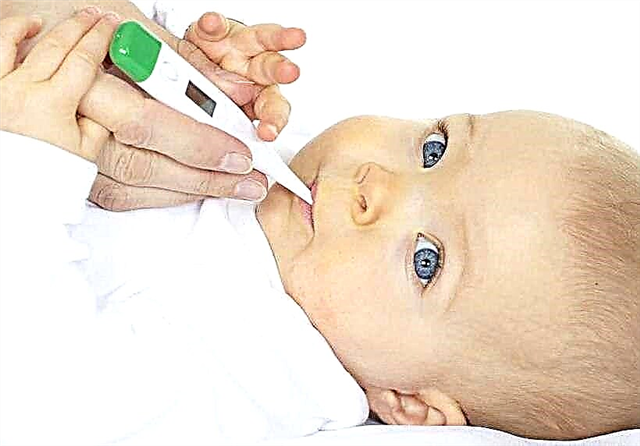
If a child speaks poorly, it is difficult to understand him, he distorts sounds, replaces one sound with another, you should not ignore this, justifying defects by age or other reasons. It is possible that the baby has a phonemic hearing disorder, and this condition requires correction.
What it is
Physiological hearing is the ability to hear, and phonemic hearing is the ability to distinguish certain phonemes of the native language, analyze, recognize them, and reproduce. The baby has physiological hearing even in the mother's womb, but the formation of phonemic hearing occurs after the birth of the baby - from the reaction to sounds during the newborn period to the ability to recognize them, divide the word into syllables and individual phonemes at preschool age.
It is believed that the main stages of the formation of phonemic (phonetic) hearing in a child are completed by 3-4 years. If, after 3 years, speech is slurred, scanty, illegible, it is worthwhile to assume possible phonemic hearing impairment (dyslalia).

Symptoms
Not every speech defect in children can be considered dyslalia. Phonemic hearing impairment can be talked about if you have the following symptoms:
- the pronunciation of individual sounds is broken - voicedness is replaced by deafness, hardness by softness, sounds are replaced by similar ones;
- the child skips the consonants in the word, rearranges the consonants in places the cockerel - the cap, the tepushok, the tree - she fought);
- the child has difficulty distinguishing or not distinguishing phonemes that are similar in sound (rat - roof, soot - sasha);
- the child cannot identify the syllables in the composition of the word.


Children with impaired phonemic hearing write illiterately, get confused with stress, because they simply do not hear the correct stress, do not differentiate the place of stress in a particular word. They have problems with consonants at the end of a word.
Causes
The causes of violations can be both medical and pedagogical. The first group includes numerous problems with the central and peripheral nervous systems. They are responsible for the formation of speech, for its implementation throughout a person's life. The following can adversely affect the nervous system:
- acute infectious diseases, especially those that are difficult;
- diseases of the digestive tract - a lack of vitamins and minerals in the body leads to apathy, inhibition of the nervous system;
- endocrine disorders - the work of the brain is largely due to hormones, and therefore the excess or low level of certain active substances can cause not only speech impairment, but also mental retardation, mental disorders;
- hearing loss - a violation of physiological hearing inevitably leads to a decrease in the rate of development of phonemic;
- brain trauma, including birth trauma, as well as neuroinfections suffered at an early age (encephalitis, meningitis, meningoencephalitis).
Pedagogical and psychological reasons include:
- unfavorable social situation in the family;
- negative example (one of the relatives speaks with gross defects);
- inattention from adults, lack of communication.

Given the variety of possible reasons, the child first of all needs to be shown to a neurologist, an otolaryngologist - these specialists will be able to exclude damage to the nervous system and problems with physical hearing. And then you should show the child to a speech therapist. This specialist will be able to determine the nature and severity of dyslalia.
It should be noted that without exception, all children, before starting school attendance, must undergo an examination to determine the level of phonemic perception... Children attending the kindergarten undergo such an examination routinely several times, including in the preparatory group. Preschoolers from 5 years of age and older should have the skills of recognizing speech and non-speech sounds, detecting certain sounds in a word, dividing into syllables, and formed phonetic rhythm.

Treatment and correction
Parents' question about what to drink to correct speech defects in a child is incorrect. There are no medications for speech disorders, and what a doctor can prescribe for them is not intended for speech, but to improve cerebral circulation (with pathologies of the nervous system) or to treat hearing loss (with poor physiological hearing), etc. That is, a doctor prescribes a medicine if he discovers that some biological reasons have led to a violation of phonemic hearing.
If the child's perception of phonemes and their reproduction is impaired for social, psychological reasons, drugs cannot solve the problem, and therefore they do not make sense. And if in the first case, they provide comprehensive treatment (medication and speech therapy), then in the second - only speech therapy, however, sometimes, without the help of a child psychologist or defectologist, one cannot do.
Children need systematic classes with a speech therapist and parents according to the program offered by the specialist (classes are conducted in a playful way, the kid should like it). Also, the specialist will show how to do speech therapy massage and gymnastics, which purposefully trains the muscles of the speech apparatus.

Classes with parents should become daily. They include games for recognizing sounds made by objects (noise of water, rustling of paper, jingling of keys), setting the correct stress in words. Exercises for dividing words into syllables are useful, and later - with the definition of the stressed. It is also important for a preschooler to learn to hear individual sounds in each syllable. For each of these tasks, there are large and varied sets of exercises, which must be given at least half an hour a day.
Useful Tips
Problems with impaired recognition and reproduction of phonemes usually do not occur in families where the child is spoken to. Since his birth. It makes no difference what to talk about with a baby - about the weather, nature or quantum physics. It is not so important whether he understands what is said. It is important that from birth the child hears and perceives human speech, its rich intonations, rhythmic pattern.

As the baby grows up, he needs to show and tell (be sure to voice) how the world around him works, as they call certain objects, phenomena, things of interest to him.
Parents are advised to give up "lisping" - if a mother distorts words with an abundance of diminutive-affectionate suffixes (beep is a car, a manunka is a baby), then the child simply has nowhere to take a correct example of normal speaking.
For information on how to identify a child's phonemic hearing impairment, see the next video.



